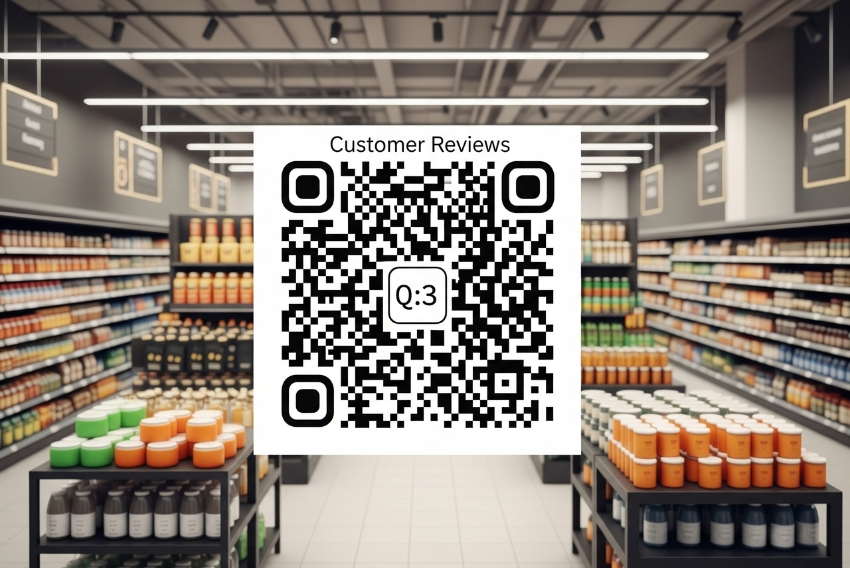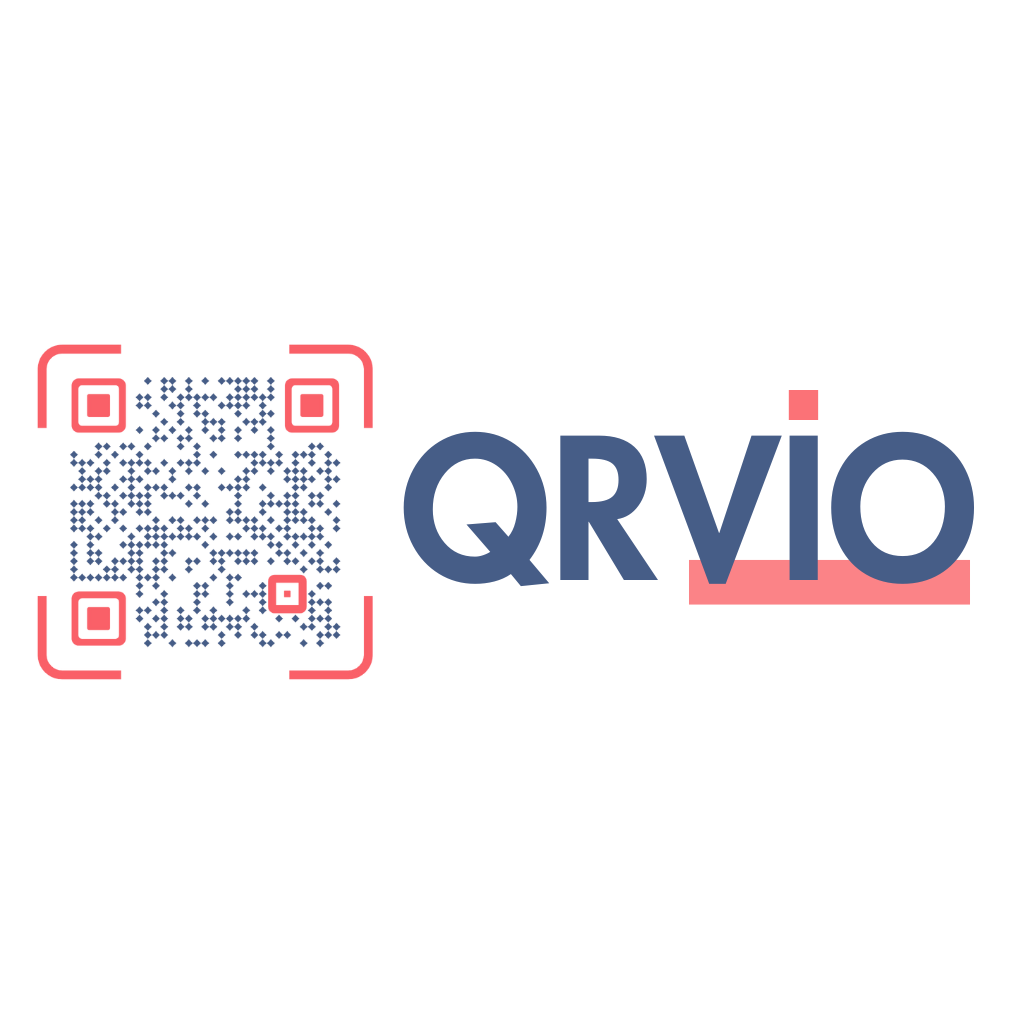QR Code for Reviews: 6 Proven Hacks to Gain More Ratings

1. Introduction
1.1 Why Every Business Needs a QR Code for Reviews
In today’s digital marketplace, customer reviews are the social proof that drives new business. Whether you’re running a café, eCommerce brand, medical clinic, or service-based business, the number and quality of your reviews impact everything—from buyer confidence to SEO visibility.
But here’s the problem: Most satisfied customers won’t take the time to leave a review unless the process is fast, easy, and friction-free.
That’s where a QR code for reviews becomes a game-changer. It eliminates barriers by letting customers scan and review in seconds—no search, no typing, no confusion.
In this article, we’ll walk you through 6 proven hacks to use QR codes strategically so you can gain more ratings, build trust, and grow your brand faster.
2. Place the QR Code Where It Gets Attention
2.1 High-Traffic, High-Impact Areas
A QR code only works if people see it. That means strategic placement is everything. Ideal locations include:
-
Checkout counters
-
Packaging boxes or bags
-
Table tents or receipts
-
Store entrances or exits
-
Event booths or demo stations
When positioned in places where customers naturally pause, your QR code for reviews becomes an easy next step.
2.2 Eye-Level Visibility Matters
Don’t tuck it away in a corner. Ensure it’s placed at eye level—on counters, walls, or product displays. Eye-level positioning makes it more noticeable and more likely to be scanned.
3. Add a Clear, Compelling Call to Action
3.1 Tell Customers Exactly What to Do
Many businesses fail to get results because they don’t tell people what the QR code is for. A strong, benefit-driven CTA makes all the difference. For example:
-
“Loved your experience? Scan to leave a quick review!”
-
“Help others by sharing your feedback—scan here.”
-
“Rate us in just 10 seconds. No login needed.”
The CTA should be placed right above or below the qr code for reviews, using large, easy-to-read font.
3.2 Use Emotional Triggers
People are more likely to act when the message connects emotionally. Try phrases like:
“Support local—leave a review”
or
“Your review helps small businesses grow.”
These lines foster a sense of contribution and community pride.
4. Customize the Design to Match Your Brand
4.1 Make the Code Visually Appealing
Gone are the days of plain black-and-white QR codes. Today, you can use branded QR designs with:
-
Custom colors
-
Rounded edges
-
Frames with icons or text
-
Your logo in the center
A well-designed qr code for reviews blends into your branding while standing out enough to invite action.
4.2 Ensure It’s Scannable
No matter how attractive the code looks, it must function perfectly. Test the code from various angles and distances. Leave enough white space around it, and don’t make it too small. Aim for at least 1×1 inch in print.
5. Link to a Mobile-Friendly Review Page
5.1 Minimize Steps to Leave Feedback
Your QR code should link directly to the review submission page—not your homepage or a long form. If your customer has to click around or search, you’ll lose them. Platforms like Google, Facebook, Yelp, or your own review page can often generate direct links to the review form.
5.2 Use Dynamic QR Codes for Flexibility
Dynamic QR codes allow you to change the destination URL without reprinting materials. That’s useful if you want to A/B test landing pages or run time-limited campaigns. Tools like QR Vio allow you to update, track, and manage QR codes seamlessly.
6. Offer a Subtle Incentive (Where Allowed)
6.1 Encourage Honest Reviews with Gratitude
While you should never pay for positive reviews, you can offer a small thank-you gesture for any feedback. Examples include:
-
A discount on the next purchase
-
Entry into a monthly raffle
-
Free samples or loyalty points
Just ensure it’s transparent and complies with the platform’s terms of service.
6.2 Include the Offer on the Poster or Insert
Mention the incentive clearly on the poster, receipt, or card where the qr code for reviews appears. A line like:
“Leave a review and get 10% off your next visit!”
can motivate action while showing appreciation.
7. Follow Up After Purchase or Service
7.1 Use Email and SMS to Reinforce the QR Code
Sometimes customers forget or need a second nudge. Send a follow-up message after purchase that includes the qr code for reviews or a link to the same page.
Email Example:
Subject: “Tell us what you think — it takes 10 seconds”
Body: “Your feedback helps others choose wisely. Scan or click here to leave a review.”
SMS Example:
“Thanks for your order! Got a sec? Leave us a quick review: [QR link]”
7.2 Time It Right
Send your follow-up while the product or experience is still fresh. For services: within 24–48 hours. For products: 3–5 days after delivery.
Want to understand the full process of creating review QR codes? Check out our Google Review Link Generator QR Code: 5 Easy Steps for a simple step-by-step guide.
8. Use Social Media to Promote Your Review QR Code
8.1 Post the Code on Your Profiles
Turn your QR into a digital asset by posting it on:
-
Instagram Stories or Highlights
-
Facebook updates or cover photo
-
LinkedIn banners for B2B brands
-
WhatsApp Business profile
-
Google My Business photo section
Accompany it with a caption like:
“Tried our service? We’d love your review—scan to rate us!”
8.2 Embed QR Codes in Reels, Videos, or Ads
Make short videos showing how easy it is to scan and leave a review. Add the QR as an overlay or in the outro. This visual reinforcement increases recognition across platforms.
9. Monitor and Optimize Performance
9.1 Use Analytics from Dynamic QR Codes
If you’re using a platform like QR Vio, check:
-
How many times the QR was scanned
-
Which design performed best
-
What devices or locations users scanned from
This data helps you fine-tune your CTA, design, or placement strategy.
9.2 Adjust Based on Review Volume
Notice a dip in reviews? Switch poster designs, move your QR code to a more visible spot, or test new messaging. Treat the review process like a marketing funnel—track and optimize continuously.
10. Respond to Reviews — Especially the Negative Ones
10.1 Show Customers You’re Listening
Responding to reviews (even brief ones) shows your business cares. A simple “Thank you for your feedback!” or “We’re glad you enjoyed it!” boosts your credibility and encourages more engagement.
10.2 Handle Criticism Gracefully
Not all reviews will be positive—and that’s okay. A polite, professional response to a 1- or 2-star review shows prospective customers that you’re accountable and responsive.
Example Response:
“We’re sorry to hear this. Please contact us directly—we’d love a chance to make it right.”
11. Integrate Review Collection into the Customer Journey
11.1 Touchpoints Before, During, and After
Your qr code for reviews shouldn’t just appear at the end. Think across the journey:
-
Before: Include a QR code on the welcome card or menu
-
During: Display it on the counter, receipt, or bag
-
After: Add it to follow-up emails, packaging inserts, or reorder pages
11.2 Create a Consistent Review Culture
Train your team to reference the review QR code during service delivery or checkout. When the request comes from a person, it feels more genuine and builds accountability.
– Conclusion
A qr code for reviews is more than a convenience—it’s a powerful trust-building tool. By reducing friction and encouraging immediate feedback, you’re turning everyday transactions into long-term brand value.
With the right placement, design, call to action, and follow-up strategy, you’ll increase your ratings, build credibility, and grow faster than competitors still relying on “hope” reviews.
– Want to create, customize, and track your own QR code for reviews?
Try QR Vio — the platform built for modern businesses. Generate dynamic QR codes, monitor engagement, and connect directly to your Google or product review page with ease.
No design skills required. Just scan, review, and grow your business with every rating.
